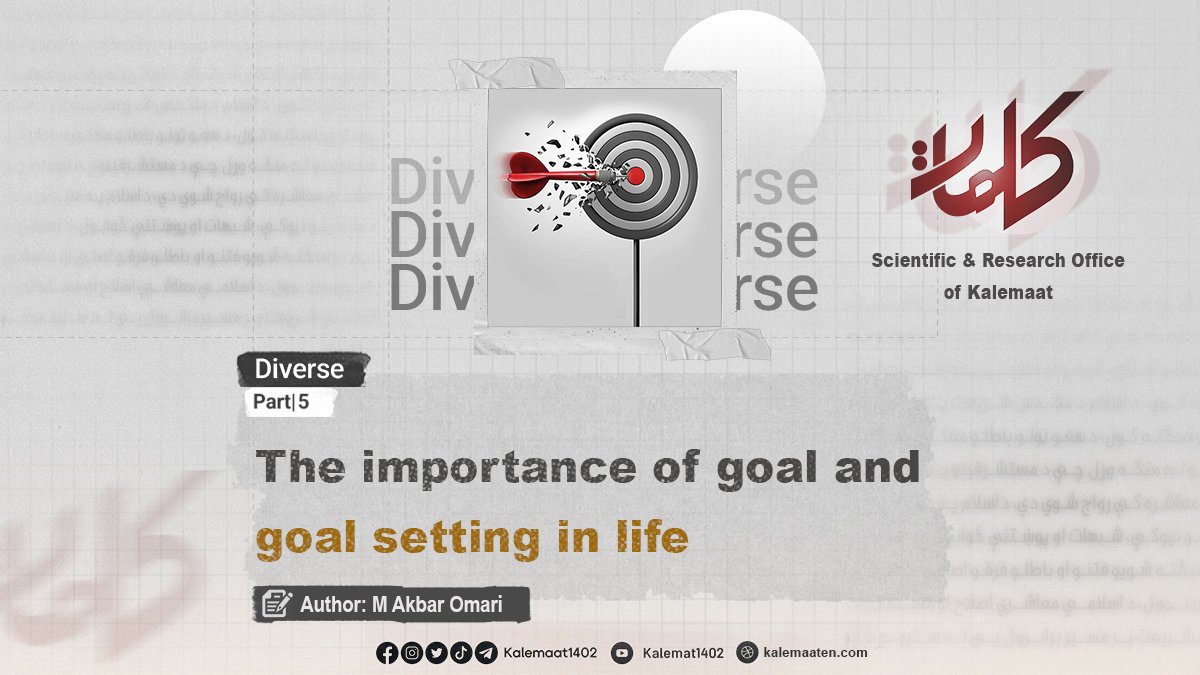Author: M. Akbar Omari
The importance of goal and goal setting in life (Part 5)
Perspectives and Views on Goals
-
Goals in the Qur’an: Purposeful and Aimless
The Noble Qur’an, as the Book of Guidance, itself pursues a lofty goal and serves as the perfect example of purposefulness. For those seeking the meaning and true purpose of life, the Qur’an invites deep reflection upon its pearls of wisdom about purposeful existence.
The Qur’an declares that human creation is founded upon a noble objective — humanity was not created without purpose but entrusted with great responsibilities by Allah. The Qur’an differentiates clearly between those who live with purpose and those who live without it.
For instance, in the verse: (أَفَمَنْ يَمْشِي مُكِبًّا عَلَىٰ وَجْهِهِ أَهْدَىٰ أَمَّنْ يَمْشِي سَوِيًّا عَلَىٰ صِرَاطٍ مُسْتَقِيمٍ) [Al-Mulk: 22] Translation: “Is one who walks with his face downcast more rightly guided, or one who walks upright upon a straight path?”
According to Ibn Kathir’s commentary, the believer is the one whose path is straight and whose direction in life is clear.
-
The Prophet’s View on Purpose
The Messenger of Allah, Prophet Muhammad (peace be upon him), is the greatest example of a purposeful human being for both Muslim and non-Muslim youth. His life began with a noble mission, and he exerted every effort to achieve it.
While most people value family, homeland, friends, wealth, and personal comfort, the Prophet (peace be upon him) sacrificed all of these for the salvation of humankind and the promotion of purposeful living.
He also advised people not to live without purpose or merely imitate others, as he said in a Hadith: «لَا تَكُونُوا إِمَّعَةً ؛ تَقُولُونَ : إِنْ أَحْسَنَ النَّاسُ ؛ أَحْسَنَّا، وَإِنْ ظَلَمُوا ؛ ظَلَمْنَا، وَلَكِنْ وَطِّنُوا أَنْفُسَكُمْ ؛ إِنْ أَحْسَنَ النَّاسُ ؛ أَنْ تُحْسِنُوا، وَإِنْ أَسَاءُوا ؛ فَلَا تَظْلِمُوا.» Translation: “Do not be an imitator who says: ‘If people do good, we will do good; and if they do wrong, we will do wrong.’ Rather, prepare yourselves so that if people do good, you also do good, and if they do wrong, you do not commit injustice.”
The Arabic word ‘إِمَّعَةٌ’ (Imma‘ah) refers to a person who lacks independent thought and merely follows the opinions of others without reflection or conviction.
-
Scholars’ Sayings on Goals and Goal-Setting



